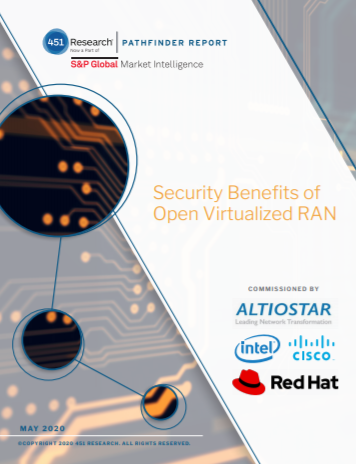Nokia to lead the EU's 6G research project
The Finnish tech giant expects 6G to launch commercially by 2030


Nokia has announced that it will lead Europe's first official research initiative into 6G technology.
The project, which has secured funding from the European Commission as part of the European Union’s Horizon 2020 research and innovation programme, aims to develop fundamental 6G technologies as well as identify its unique use cases and scenarios.
Called Hexa-6, the project is being led by Nokia, with fundamental technologies already being studied by the Finnish tech giant’s industrial research arm Bell Labs. Hexa-6 is scheduled to begin research on 1 January 2021 and is expected to last until mid-2023.
Together with the Hexa-6 consortium, Bell Lab has identified six research challenges which will need to be addressed in order to lay the technical foundation for 6G wireless systems. These include improvements to artificial intelligence (AI) and machine learning (ML) technologies, efficient and affordable solutions for global service coverage, ensuring data privacy, sustainability, and the creation of a single network of networks.
Nokia Bell Labs’ head of Access and Devices Research Peter Vetter said that the “6G era” is expected to see “applications that will not only connect humans with machines but also connect humans with the digital world”.
“Such a secure and private connection can be used for preventive healthcare or even to create a 6G network with a sixth sense that intuitively understands our intentions, making our interactions with the physical world more effective and anticipating our needs, thereby improving our productivity,” he said, adding that, although “there is still a lot of innovation in 5G with the release of new standards” Nokia is “already exploring 6G”.
The Finnish tech giant expects 6G systems to follow the typical 10-year cycle between generations, with a commercial launch by 2030.
Get the ITPro daily newsletter
Sign up today and you will receive a free copy of our Future Focus 2025 report - the leading guidance on AI, cybersecurity and other IT challenges as per 700+ senior executives
RELATED RESOURCE

Security benefits of open virtualised RAN
How radio access network infrastructure strengthens and simplifies your security strategy
The announcement comes just days after Nokia unveiled a new study with Telefonica which concluded that, although 5G networks are expected to considerably increase network traffic, this will not lead to a rise in energy consumption at the same rate as when using 4G.
The findings were based on a three-month study of Radio Access Network (RAN) power consumption in Telefonica’s network, using Nokia’s AirScale Base Stations and AirScale Massive MIMO Active Antenna solutions.
Having only graduated from City University in 2019, Sabina has already demonstrated her abilities as a keen writer and effective journalist. Currently a content writer for Drapers, Sabina spent a number of years writing for ITPro, specialising in networking and telecommunications, as well as charting the efforts of technology companies to improve their inclusion and diversity strategies, a topic close to her heart.
Sabina has also held a number of editorial roles at Harper's Bazaar, Cube Collective, and HighClouds.
-
 Global cybersecurity spending is set to rise 12% in 2025 – here are the industries ramping up investment
Global cybersecurity spending is set to rise 12% in 2025 – here are the industries ramping up investmentNews Global cybersecurity spending is expected to surge this year, fueled by escalating state-sponsored threats and the rise of generative AI, according to new analysis from IDC.
By Ross Kelly Published
-
 Google Cloud is leaning on all its strengths to support enterprise AI
Google Cloud is leaning on all its strengths to support enterprise AIAnalysis Google Cloud made a big statement at its annual conference last week, staking its claim as the go-to provider for enterprise AI adoption.
By Rory Bathgate Published